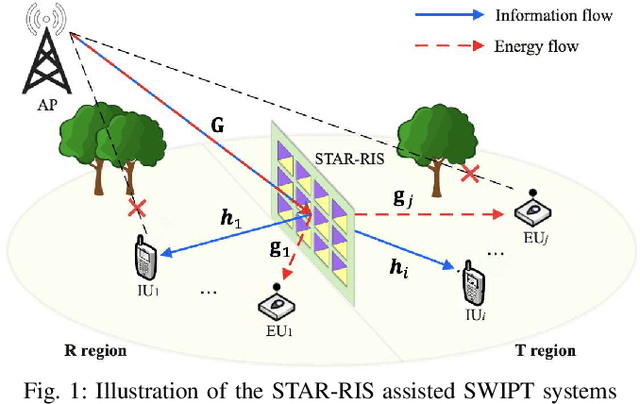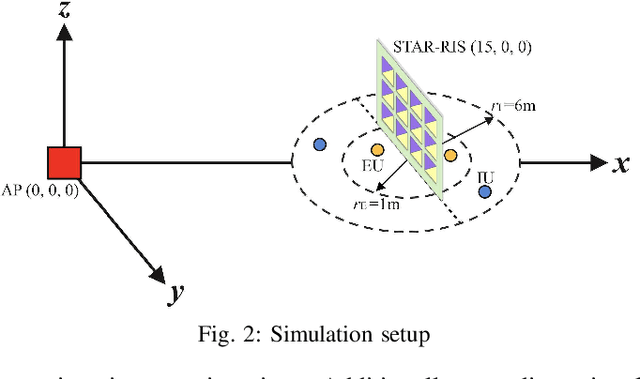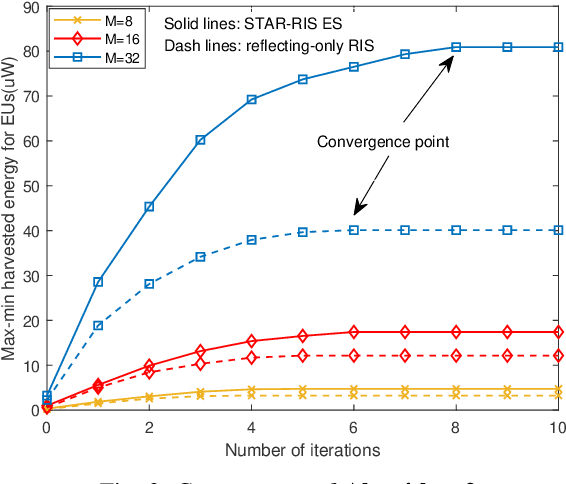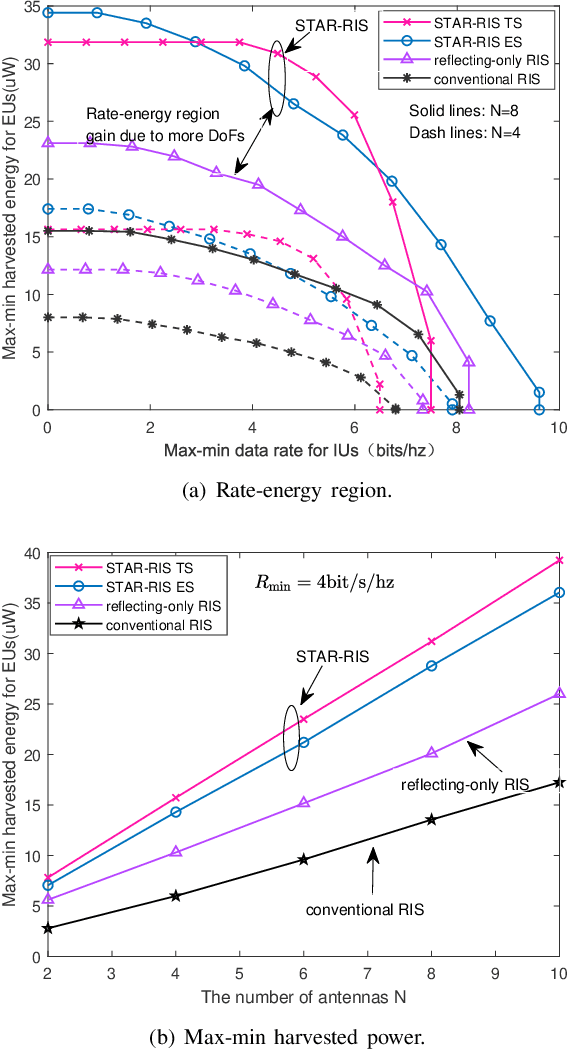Robust Resource Allocation for STAR-RIS Assisted SWIPT Systems
Paper and Code
Mar 22, 2024



A simultaneously transmitting and reflecting reconfigurable intelligent surface (STAR-RIS) assisted simultaneous wireless information and power transfer (SWIPT) system is proposed. More particularly, an STAR-RIS is deployed to assist in the information/power transfer from a multi-antenna access point (AP) to multiple single-antenna information users (IUs) and energy users (EUs), where two practical STAR-RIS operating protocols, namely energy splitting (ES) and time switching (TS), are employed. Under the imperfect channel state information (CSI) condition, a multi-objective optimization problem (MOOP) framework, that simultaneously maximizes the minimum data rate and minimum harvested power, is employed to investigate the fundamental rate-energy trade-off between IUs and EUs. To obtain the optimal robust resource allocation strategy, the MOOP is first transformed into a single-objective optimization problem (SOOP) via the {\epsilon}-constraint method, which is then reformulated by approximating semi-infinite inequality constraints with the S-procedure. For ES, an alternating optimization (AO)-based algorithm is proposed to jointly design AP active beamforming and STAR-RIS passive beamforming, where a penalty method is leveraged in STAR-RIS beamforming design. Furthermore, the developed algorithm is extended to optimize the time allocation policy and beamforming vectors in a two-layer iterative manner for TS. Numerical results reveal that: 1) deploying STAR-RISs achieves a significant performance gain over conventional RISs, especially in terms of harvested power for EUs; 2) the ES protocol obtains a better user fairness performance when focusing only on IUs or EUs, while the TS protocol yields a better balance between IUs and EUs; 3) the imperfect CSI affects IUs more significantly than EUs, whereas TS can confer a more robust design to attenuate these effects.
 Add to Chrome
Add to Chrome Add to Firefox
Add to Firefox Add to Edge
Add to Edge